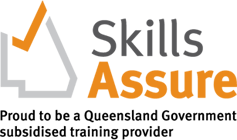In today’s increasingly competitive job market, having a strong vocational skill set is vital. Vocational skills set you apart from the competition, build your confidence, and make you more employable in practical roles.
The demand for skilled workers in Australia is rising – employers are looking for talented individuals with the quality training and hands-on expertise required to thrive in vocational roles. In this article, we’ll explore what vocational skills are, why they’re important, and which skills you should aim to attain to succeed in different vocational industries.
What are vocational skills?
Vocational skills refer to the practical skills an individual can attain to improve their expertise and talent in their chosen profession.
Unlike theoretical knowledge, vocational skills are experiential, with a focus on hands-on expertise that a worker can immediately apply to their chosen career.
Vocational skills could encompass technical expertise, practical knowledge, communication skills, teamwork, time management or problem-solving abilities. The link between all of these skills is that they are each centred on real-world experience. All vocational skills are learnable, hands-on qualities you can use to progress in your chosen career.
How can vocational skills help with career growth?
Building vocational skills offers several proven benefits for individuals at every stage of their career. Whether you’re searching for your first role, looking for a change of direction or want to move into a senior leadership position, building vocational skills can make you better prepared, more confident, and more employable.
Here are just a few of the core benefits of building your vocational skillset:
- Vocational skills prove that you have the experience needed to succeed in a particular career. This makes it easier for you to transition into new roles, making you a more attractive candidate to employers.
- Vocational training builds independence and reliability, two traits employers look for in potential candidates.
- Most vocational training programs require little to no academic experience, meaning they are open to anyone who wants to further their career.
- Vocational skills can be acquired much more quickly than degree-based knowledge, making vocational education an excellent choice for those that want to advance their career faster.
- A vocational qualification is much cheaper to attain than a comparable higher education qualification.
- Vocational skill development is typically hands-on, with a focus on practical expertise.
- Vocational education builds confidence that students can apply to every aspect of their careers and personal lives.
- VET courses tend to offer more flexibility compared to a traditional education. Students may be able to study self-paced online, or on a part-time program, allowing them to work their vocational training around their daily lives.
Necessary vocational skills: by role
Every vocational role is different. Your chosen career path will influence the training, qualifications and unique skill set you need. Let’s look at some common vocational career paths and common skills that will help you succeed in your role.
Support/Care Worker
Care workers provide holistic personal and group support to diverse individuals. Whether you’re looking to specialise in aged, child or disability care, here are some essential skills you should acquire to succeed in supportive roles:
- Communication skills
- Problem-solving
- Organisation
- Reliability
- Compassion and Empathy
Electrician
Electricians install, maintain and repair electrical systems and equipment to ensure they function correctly. Here are some key vocational and technical skills required for the role.
- Attention to detail
- Mathematical knowledge
- Technical knowledge
- Communication skills
- Confidence
Carpenter
Carpenters work with raw materials to build, maintain and repair structures. As such, they need to have core skills such as:
- Dexterity
- Strength
- Communication skills
- Mathematical knowledge
- Mechanical skills
Computer programmer
Computer programmers develop, write and maintain software programs by writing code in programming languages, meaning they require skills like:
- Technology skills
- Problem-solving
- Critical thinking
- Organisation
- Mathematical knowledge
How can I build vocational skills?
The best way to attain vocational skills is through vocational education and training (VET) programs. Vocational courses prepare you for work in skills-based careers, such as in the trade or craft industries.
Vocational programs vary in length, complexity and learning style, but with thousands of courses to choose from across Australia, there’s a suitable VET course for everyone.
Vocational courses are also an outstanding opportunity for those interested in the aged care, child care or disability care sectors. The practical nature of vocational training helps students graduate with lifelong skills that they can immediately apply to support-based roles.
With vocational workers in high demand, enrolling in a Certificate III or Certificate IV course is a great way to acquire the practical skills you need to get started with a rewarding career in a short space of time.
For example, a Certificate III in Individual Support course or Certificate IV in Ageing Support course offers an excellent pathway into the aged care sector, one of Australia’s most in-demand professions.
In fact, when you enrol with Sage, you could start a rewarding career earning $50-60k per annum within three months of completing your training. You’ll also develop core vocational skills, grow your confidence, and network with like-minded individuals.
Who offers VET courses in Australia?
There are many different bodies, both government-owned and independent, that provide VET courses in Australia, including:
- Technical and further education (TAFE) institutes
- Some universities and vocational schools
- Private and technical education colleges
- Business RTOs that offer on-the-job training
- Industry associations
- Not for profits
- Private providers
If you’re looking to start a new career, the key to choosing a VET course is to pick a training program delivered by a Registered Training Organisation (RTO). #
RTOs are the only organisations authorised to deliver accredited VET courses, meaning that each course you study from an RTO is nationally recognised. This shows employers that your training was delivered to a high standard, demonstrating that you have the skills needed to succeed in a vocational role.
Why should I study with Sage?
Looking to start a career in the childcare, aged care or disability care sectors? Sage can help.
Since our launch in 1998, we’ve helped over 4000 applicants graduate from our nationally recognised, accredited courses with lifelong employability skills and the hands-on expertise needed to thrive in vocational roles.
We’ve helped people from across Australia build confidence, grow their skill set and start rewarding roles in relevant industries. We offer a range of best-in-class courses, including:
- CHC33015 – Certificate III in Individual Support (Ageing or Disability)
- CHC43015 – Certificate IV in Ageing Support
- CHC43115 – Certificate IV in Disability
- CHC52015 – Diploma of Community Services
- CHC30121 – Certificate III in Early Childhood Education and Care
- CHC50121 – Diploma of Early Childhood Education and Care
- HLTAID009, HLTAID011, HLTAID012 – First Aid courses
- CHCSS00070 – Assist Clients with Medication Skill Set
- CHCSS00073 – Case Management Skill Set
Why study with us? When you enrol with Sage, you’re not just enrolling with a nationally recognised course provider. You’re enrolling with a team that puts your career progression first.
That’s why we help all of our graduates secure employment once they complete their training. In fact, we’re proud to say that we help over 80% of our graduates find a well-paid role within 12 weeks of their course end date.
Want to learn how Sage can help you find the career of your dreams? Browse our list of courses today or get in touch. A member of our team will be on hand to answer any questions you may have. We’re committed to helping you find the course pathway that meets your needs.



